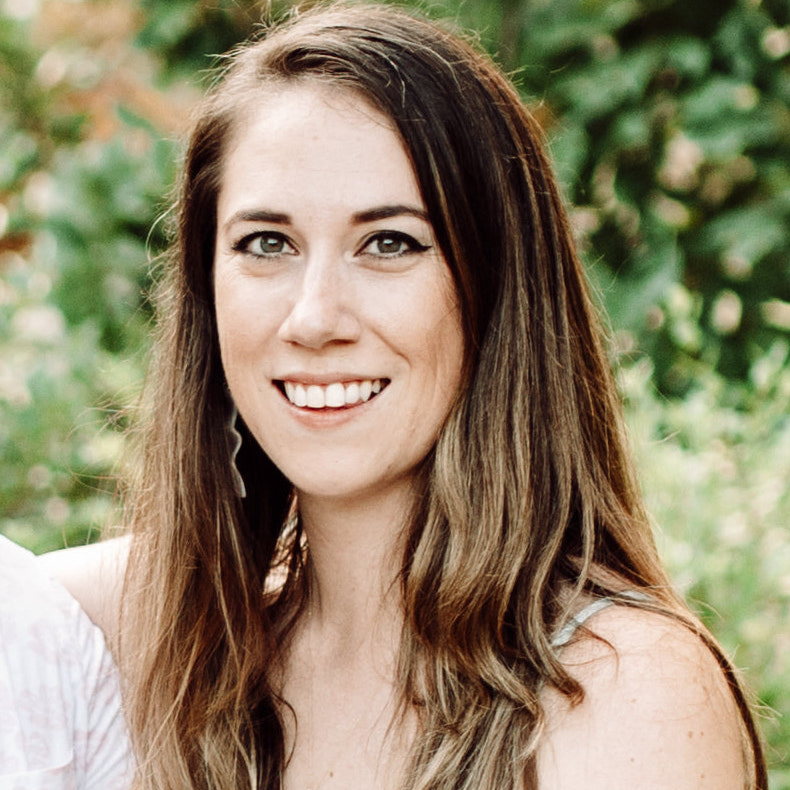Let's talk about why most podcast interviews are forgettable. It's not the topics—whether you're diving into business strategies, reality TV drama, or D&D campaigns—and it's rarely about the guests. The uncomfortable truth? It's your interview skills. Great interviews aren't just about having good questions or booking experts. They require specific techniques that transform knowledge into genuinely engaging conversations—skills most hosts never develop but that anyone can learn.
Advanced interviewer qualities
Being a great podcast interviewer requires more than just robust editing skills; it calls for strategic curiosity. According to research, curiosity involves asking open-ended follow-ups, which draws out deeper insights from your guests without overshadowing them. A low ego ensures you’re not monopolizing the spotlight, focusing instead on highlighting the guest’s expertise. Another critical quality is tension-building, which introduces an element of intrigue without creating discomfort. For example, you can tease an upcoming controversial question early on, keeping listeners on the edge of their seats. Balancing these traits helps create a dynamic interview that keeps your audience engaged. By sharpening these qualities, you set the stage for truly memorable episodes.
How to find the right podcast interview guests
Before hitting up all your friends to come on your show, consider the qualities that make a good podcast guest. More than anything, your guest has to be an engaging and concise talker. While personal chemistry matters, the ability to hold an audience's attention and communicate expert information clearly are the most important qualities for a successful podcast interview.
Think of it like this: if you didn't know this person, could they walk you through fixing your computer as tech support? Can they give clear instructions, listen to your ideas, and keep you engaged on the phone? If the answer is yes, they'd probably make a great podcast interview guest. As you sort through potential candidates, use this communication litmus test to identify who will truly connect with your listeners.
What if you only know them from the internet and have never heard them speak? In that case, research their previous podcast appearances, YouTube videos, or social media content—anywhere you might observe how they communicate. If you're still unsure about their interview skills, schedule a brief pre-interview call to assess their speaking style before committing to a full recording session.
Effective ways to tactfully challenge guests
Challenging your podcast guests can lead to more nuanced discussions, but it must be done respectfully. As noted in the research, politely questioning assumptions or inviting contrasting viewpoints allows listeners to hear different angles on a topic. For example, you might invite your guest to defend a less popular stance, adding depth to your show without undermining their expertise. Respectful disagreement fosters genuine dialogue, making the conversation feel authentic and empowering guests to share deeper insights. Used sparingly, these strategies can spark compelling debate that keeps your audience’s attention. However, remember to strike a balance between friendly contention and open hostility, ensuring your guest remains comfortable. This approach ultimately transforms your interview into a more engaging and thought-provoking experience.
How to reach out to podcast guests effectively
Now that you know who you're going to ask, how are you going to go about it? A short and sweet email is all you need. Just lay out the relevant information about your show, how long the interview will take, and why they would make a good guest. Here's an example if I reached out to my friend Amanda to come on my podcast where we rank video game characters:
Subject: Want to talk about which video game character would win in a fight?
Body:
Hey Amanda,
Hope all is well with you and you're recovering from the onslaught of previews at Summer Games Fest.
I'm reaching out because I'd love it if you would guest on my podcast Triple S Tier, where we debate which video game character would win in a fight. We run through a list of questions that I have prepped, compare them to similar characters and their friends on their console generation, and talk about your relationship to that character. The show has been going for 20 episodes so far, and we've talked about Master Chief, Mario, Spyro, Isabelle from Animal Crossing, and many more.
I'd love the chance to interview you for this show. I know you've written a lot of blogs about Shadow the Hedgehog and Big the Cat, and you're incredibly funny online, so I'd love to have you.
It would take around 90 minutes and take place remotely, but if you find yourself in NYC in the next few months we can do it in person.
Let me know if this is of interest and we can get something on the calendar.
– Eric
Feel free to turn this into a podcast guest outreach template. Customize the introduction and your reason for inviting them, and you're ready to connect with potential guests.
Once they agree to the interview, build on that previous email with all the necessary logistical information and technical requirements. You can explain the format or subjects you're going to cover, but only if you feel the guest would be caught off guard without this context. You're balancing being informative without overwhelming them, so prioritize essential details.
Here's my example:
Hey Amanda,
Thanks so much for being on Triple S Tier. Confirmation of the recording date and time are below, as well as in the calendar invite I just sent along.
DATE: Tuesday June 11, 2024
TIME: 11:15am
LINK: [insert your SquadCast or other remote recording link]
In order for you to sound the best you can, here are a few steps we'd love you to take in advance of our recording:
- We record over SquadCast, just click the link above when you're in the way.
- Use the strongest internet connection you have.
—A hardwired ethernet cable is preferable to WiFi, if possible
—5G WiFi networks are usually stronger than regular ones, if available
- If you have the capability to record your side of the conversation on your own device, please do!
—Using a microphone is ideal, but if not, headphones with a built-in mic (like iPhone earbuds) are okay too.
- Please wear headphones during the call.
- Record in the quietest room you can: away from traffic, pets, loud air conditioners, etc.
—A closet is often a quiet choice if you have one large enough. Otherwise, please choose a room with as little echo as possible
- Finally, please send us your files for your local recording as soon as possible after our recording at this Dropbox link [link].
If you have any questions, feel free to ask. Otherwise, I will see you on Tuesday!
– Eric
How to craft podcast interview questions
The interview is locked in the calendar, and now you've got to prepare.
- Research your guest ahead of time: This is the main tool in your toolkit to surprise, entice, and constructively challenge your guest. Take some time to listen to podcast episodes they've featured on and read interviews that they've given before.
- Quote the guest back to them: Once you have a juicy nugget, transcribe or copy that down and use it as a springboard for a question. As an audio medium, podcast interviews need signposting to remind folks where the conversation is and where it's going. Using quotes is a great way to orient the listener and the interviewee.
- Dig into their Wikipedia citations and their social media channels: These two are overlooked goldmines for good questions. If they have a Wikipedia page, see where the citations go. And everyone forgets what they've tweeted as soon as they do it, so by quoting their posts, you might be surprising them with their own words.
- Write more questions than you think you'd need: You might get caught up in keeping the interview on course and within time constraints if you're married to all of your questions. Write more questions that you need so that you can drop a few if the interview is going on a fun and interesting tangent.
- Let the last question be an opportunity to say something spicy: Instead of putting pressure on yourself to come up with a great final question, you can prepare the same last question for every episode. I recommend a “hot take” framing so the interviewee can drop an unexpected, unique answer. You can say something like, “Here at the end of the show, we let our guests take the opportunity to unleash a flaming hot take on the mic about [the subject of the interview.]” This is perfect not only for ending on a bang, but it's also ripe for social clips. And even if they take a minute to think about it, you can always cut that out.
Best equipment setup for podcast interviews
It's your podcast interview, so make sure you're bringing your A-game. Use the best microphone and camera available, ensure you're on a strong WiFi or ethernet connection, and wear headphones to prevent echo. Your professional setup might subtly encourage an unprepared guest to match your quality standards. Before recording begins, check if they have any questions about the preparation email you sent earlier.
For remote podcast interviews, we recommend SquadCast. While many default to Zoom, it's better to use a platform specifically designed for remote recording. SquadCast records each guest locally for higher-quality audio, which will make editing and mixing significantly easier in Descript later. This is especially important if your guest can't record themselves locally, but always have a backup recording method regardless.
 |
How to conduct engaging podcast interviews
Once the interview begins, you need to be fully present. You're both the podcast host and the host of this conversational party, so maintain energy and take care of your guest throughout:
- Be an active listener, but not out loud: You want your interviewee to feel like you're having a good time with them. But it will be a pain to have to cut out all of the “mmhmm” and “for sure” that you're saying while they're talking. While you can't maintain eye contact remotely, everyone knows what it looks like when someone's focused on a different tab or looking at their phone. And nod your head emphatically when they make a good point.
- Laugh warmly and emphatically: There's one place where it's acceptable, even encouraged to make noise as the listening member of the interview, and that's laughing. If your guest is funny, let them know!
- Ask follow-up questions: Feel free to deviate from the questions you prepared if you think there's an interesting avenue to walk down. That's why you overprepared, remember?
- Know when to jump in: It may feel rude not to let the guest answer every question fully, but a good interviewer knows when to hop in and redirect. If the guest gets off-course or misinterprets the question, politely interrupt and reframe.
Post-podcast interview follow-up strategies
The interview is over, but your relationship with the guest isn't! Follow up with a warm email thanking them for their time and providing links and any promotional materials you want them to share on social media. And don't be afraid to ask about appearing on their show; relationship building is the name of the game, and they should be happy to reciprocate after your thoughtful interview approach.
Podcast interview tips FAQ
Want to know more about podcasting interviews? Here are some answers to our frequently asked questions:
How do I prepare for a podcast interview?
To prepare for a podcast interview, do thorough research! Read previous interviews, listen to their past podcast appearances, and explore their Wikipedia pages and social media channels for interesting talking points they might not even remember sharing. Good preparation creates the foundation for a natural, flowing conversation.
How do you create podcast interview questions?
Remember that your perspective as an interviewer is critical to your podcast's unique value. You're not just preparing for a generic interview; it's your interview. Ask questions that genuinely interest you, and don't hesitate to share your own insights about their work. This personal approach creates more authentic and engaging conversations.
How do I conduct a successful podcast interview?
To nail a podcast interview, active listening is key. While maintaining eye contact isn't possible during remote recording sessions, demonstrate your full attention by staying visibly engaged and avoiding distractions. Practice nodding silently rather than verbally responding with "mmhmms" and "rights"—this will save significant time when editing your podcast in Descript later.
How do you structure a podcast interview?
To structure an interview podcast, think of it as a natural conversation with ebbs and flows. Divide your segments based on key topics or themes, exploring different aspects of your guest's expertise or experiences. If one segment runs longer than planned because the conversation is particularly valuable, that's perfectly fine—flexibility creates better content.
How do I keep my guest comfortable while maintaining tension in the interview?
Creating tension is about adding intrigue without making your guest uneasy. According to the research, teasing upcoming topics or posing thought-provoking questions can engage your audience without alienating the guest. You can also reassure your guest beforehand about the interview’s format and any challenging points you intend to explore. This balanced approach fosters an environment that combines excitement with respect.
Is it beneficial to disagree with my guest?
Disagreeing with your guest can be productive when done respectfully. According to the research, offering a polite counterpoint can spark deeper conversation and illuminate different perspectives. Listeners often appreciate hearing multiple viewpoints, as it adds dimension to the topic. Just remember to maintain professionalism and empathy, ensuring the guest feels heard and valued.























%20(1).JPG)




%20AI.png)




